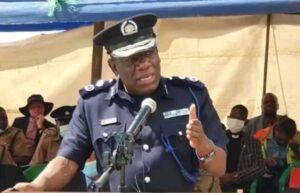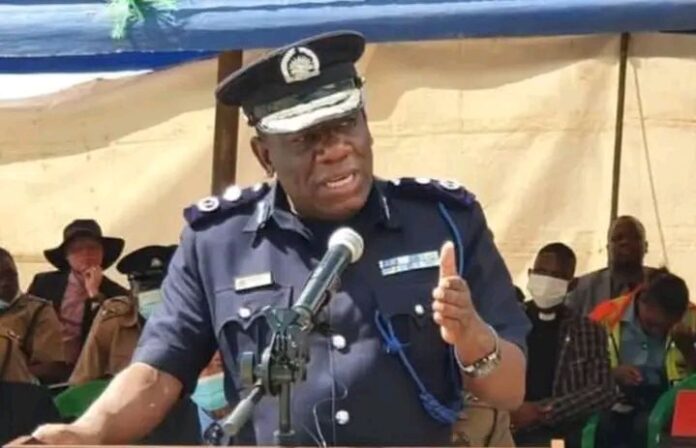By Burnett Munthali
The appointment of newly designated Inspector General of Police, Richard Luhanga, has stirred public debate, but legal experts and political commentators insist that his interdiction cannot disqualify him from assuming office.
The Malawi Law Society (MLS), together with several prominent lawyers and political analysts, have emphasized that an interdiction is not equivalent to a court conviction, and therefore does not invalidate Luhanga’s eligibility to serve as the nation’s top cop.

President Peter Mutharika’s decision to appoint Luhanga raised eyebrows because the appointee was suspended in March 2025 following his arrest by the Anti-Corruption Bureau (ACB) on charges of abuse of public office.
Before his appointment, Luhanga served as Northern Region Commissioner of Police, and was granted bail by Chief Resident Magistrate Godfrey Balaka after being charged.
In a written response to The Nation, MLS honorary secretary Francis M’mame clarified that an interdiction is merely an internal administrative measure meant to allow investigations, and does not amount to guilt or legal disqualification.
He urged the public to maintain sober reflection, reminding Malawians that every accused person is presumed innocent until proven guilty by a competent court of law.
M’mame explained that the interdiction was simply a temporary removal of duty and not a judicial finding of guilt.
He added that from a legal perspective, the interdiction “does not create a statutory or constitutional barrier” to Luhanga’s appointment as Inspector General.
He further stated that the ACB’s ongoing case is an independent legal process, which remains unaffected by Luhanga’s promotion to the highest police office.
Echoing this position, private-practice lawyer Christon Ghambi said there was nothing illegal about the appointment because Luhanga remains a suspect, not a convict.
Ghambi emphasized that Luhanga was still technically an employee of the Malawi Police Service during his suspension, and therefore his appointment is within legal bounds.
He added that since interdiction is an administrative remedy, the appointing authority—the government—has full discretion to suspend or reinstate an employee.
Ghambi also clarified that while the appointment is lawful, it does not nullify the ACB’s charges, as the bureau remains free to pursue the case.
Another legal expert, Khwima Mchizi, agreed with this interpretation, saying Luhanga’s promotion effectively overrides the interdiction, since the same government that suspended him is now reinstating him to a higher post.
He observed that the decision implies a background check was conducted, and that the authorities are confident in the appointee’s suitability for office.
Mchizi also noted that the State has the power to withdraw charges at any stage, especially in cases where trials have not yet commenced, such as Luhanga’s.
Political commentator Wonderful Mkhutche added that while the interdiction may have “died a natural death,” the matter could still spark controversy when Luhanga faces confirmation by the Public Appointments Committee of Parliament.
He urged a balanced view, stressing that innocence until proven guilty must be upheld, but also encouraged government to conclude investigations in a timely manner to avoid public confusion.
Mzuzu University political analyst Chrispin Mphande shared a similar concern, calling for speedy prosecution of corruption cases to prevent speculation and mistrust in public institutions.
He said the best approach would be to ensure sufficient evidence before an arrest is made and to commence trials without delay once charges are laid.
When contacted for comment, Luhanga declined to discuss the matter, citing ongoing legal proceedings, but expressed gratitude to the President for entrusting him with national leadership in the police service.
Earlier this year, the Anti-Corruption Bureau had confirmed Luhanga’s arrest after investigating claims that he misused paint donated by Press Trust to the Northern Region Police Headquarters.
The ACB alleged that Luhanga used the paint meant for Mzuzu Police Hospital to decorate his private properties at Nkhozo Estate in Bolero, Rumphi, an act that led to charges of abuse of office.
The controversy surrounding his appointment continues to generate debate about the intersection of politics, law, and accountability in Malawi’s public service.
However, legal experts remain firm that until proven guilty by a court, Luhanga retains his presumption of innocence and is legally qualified to serve as Inspector General of Police.



